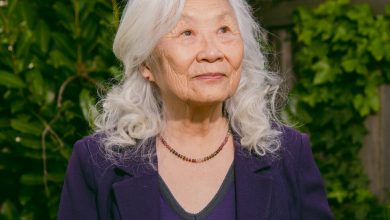How Khruangbin’s Sound Became the New Mood Music

I worry that the word “vibes” is overused, but in what follows it is unavoidable: The band Khruangbin, a trio from Houston, has become so popular that there now exists an entire subgenre of music broadly known as “Khruangbin vibes.” If you have walked into a relatively hip coffee shop in a major or even minor city lately, you have probably encountered Khruangbin vibes. They’re marked by low-key, reverb-heavy, often guitar-forward instrumentals — music that’s groovy and pleasant, bewitchingly exotic yet comfortingly familiar, inoffensive and instantly graspable as existing within a particular sonic space. A vibe, as it were.
Listen to this article, read by MacLeod Andrews
Open this article in the New York Times Audio app on iOS.
That such music has come to have a real toehold on the culture says as much about the way music is listened to today as the sound itself. Music now exists primarily within the stream, which is to say passively: We turn it on, like a faucet, and out pour songs representing some mood, or emotion, or any of the other words we used before we had “vibes.” Perhaps it’s an aura, like “chill.” Or a vague, evocative mind-set, like “always Sunday.” The tap turns and out pour songs we already liked, along with burbles of what is a little new and different yet fits in beautifully. This is the arrangement in which “Khruangbin vibes” excel. Such music is extremely slippery, genrewise. (Is it psychedelic lounge dub? Desert surf rock? The sound you hear inside a lava lamp?) As such, it pairs well with a huge span of music, across genres and eras; it has a kind of algorithmic inevitability to it. But this slipperiness also means that quite a lot of the bands now producing Khruangbin-vibesy music are entirely forgettable.
Fortunately, being the three musicians who popularized a sound that so many others are chasing is not the same thing as chasing that sound yourself. To the members of Khruangbin — pronounced krung-bin, and featuring Laura Lee Ochoa on bass, Donald Johnson on drums and Mark Speer on guitar — that sound is not so much a goal as a result: It is what happens when they play music together. And while many others have tried, and are still trying, to identify and replicate what is so particular about Khruangbin’s sound, this is not really possible, because what happens among people when they play music together cannot really be quantified. Often, when it works, it is more — well, it’s more vibey than that.
Steve Christensen, Khruangbin’s longtime producer, explained it to me like this: Just about every day, he gets hit up on Instagram by folks asking how to achieve a particular Khruangbin sound. He responds, keeping no secrets, readily giving away everything, because Ochoa, Johnson and Speer have used pretty much the exact same setup for well over a decade now. Their gear and their instruments are simple and straightforward to the point of being borderline ascetic. (Ochoa, for example, has not changed the strings on her bass since 2010, when the group first formed.) When people write back to Christensen, which they often do, they will tell him that they now have all the same gear, and have learned all the songs perfectly, and still cannot get quite the same sound. “Well, I’m sorry,” he tells them, “but that’s just how they play.” Someone might copy Speer’s rig down to the last knob setting, and play his guitar melodies note for note, but without Ochoa and Johnson playing, too, the Khruangbin sound cannot be duplicated. “I know it sounds so simple,” Christensen says, “but if they’re not playing as a trio, it just doesn’t sound like KB.”




